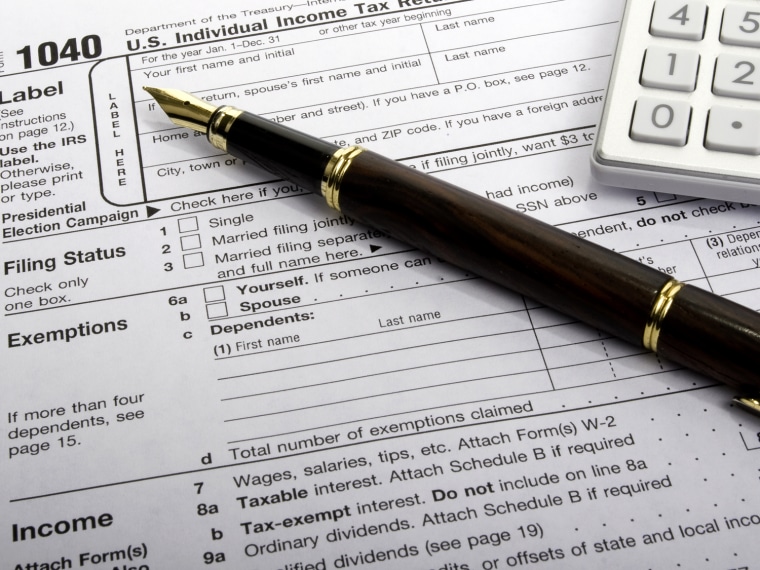The basic contours of the controversy surrounding Donald Trump's tax returns are pretty straightforward. In 2016, Trump ignored historical norms and his own promises to become the first modern major-party presidential candidate to refuse to disclose his tax returns. In the first two years of his presidency, congressional Democrats took steps to force transparency, but Trump's Republican allies shielded him.
Now that Dems are in the House majority, the White House is quite nervous that the opposition party will be able acquire the documents the president has gone out of his way to keep secret (for reasons he has not yet explained).
Democrats, however, have proceeded with some caution -- too much, to hear some progressive voices tell it. The party could just use raw political force to acquire Trump's tax returns, but they instead appear determined to methodically build a case to justify the move. To that end, Congress saw its first hearing on the subject yesterday.
President Donald Trump exhibited "aggressive tax planning" prior to his 2016 election and "could have eliminated his taxes for a couple of decades" by claiming millions in business-related losses, tax expert Steven Rosenthal told a congressional panel Thursday."There is a lot to find," said Rosenthal, a senior fellow at the nonpartisan Tax Policy Center who has scrutinized portions of Trump's 1995 and 2005 returns last year in partnership with the New York Times.Rosenthal was among several nonpartisan tax experts who testified at the first Democratic-run House Ways and Means Committee hearing on Trump's taxes. The hearing was intended to begin "building the public case for why the American people deserve to know something — anything -- about Trump's finances," said a Democratic leadership aide who was not authorized to speak publicly.
Not surprisingly, the White House's GOP allies on Capitol Hill remain determined to help Trump keep his materials under wraps, and House Ways and Means Ranking Member Kevin Brady (R-Texas) and House Oversight Subcommittee Ranking Member Mike Kelly (R-Pa.) yesterday sent a letter to Ways and Means Committee Chairman Richard Neal (D-Mass.), urging him to back off.
Their argument included one notable claim that stood out.
Apparently hoping to make the case that congressional scrutiny is unnecessary, the GOP lawmakers argued, "Presidents and vice presidents are required to file detailed financial disclosures and are subject to a background check by the Federal Bureau of Investigations [sic]."
The first part of that is certainly true; presidential financial disclosures are already required. But does the FBI do background checks on presidents and/or presidential candidates?
We've done some digging on this, and while I can't say with absolute certainty, the experts we contacted agreed that this is incorrect. There is no such FBI background check.
Perhaps, then, the case for transparency is even stronger?
Postscript: The Republicans' letter added, "If there are valid concerns with financial disclosures, then let's come together to legislate a thoughtful solution to require additional disclosures."
I suspect it'll eventually come to this. Since Watergate, there's been no need to legally require major-party presidential candidates to disclose their tax returns because both parties' candidates always did so voluntarily. Why change the law to mandate what everyone already does?
Donald Trump's insistence on secrecy changed the game. The law will likely have to keep up.
